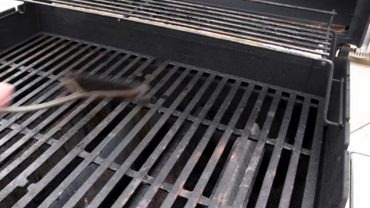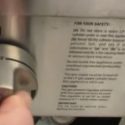Common Commercial Refrigeration Problems and How to Troubleshoot Them
For anyone managing a culinary or drink-oriented enterprise, it’s clear that refrigeration plays a pivotal role in your day-to-day operations. Indeed, from catering companies and eateries to bars and various other food sector ventures, the majority of your consumables necessitate continuous refrigeration around the clock.
When your business relies on large-scale refrigeration to keep daily operations going, residential refrigerators simply will not cut it. However, commercial refrigeration units can provide the size, layouts, and cooling power you need. Most commercial refrigerators use a circuit that incorporates an absorption system or vapour compressor to cool or dry the air. As the vapour expands into a gas, it eliminates heat.
Although commercial refrigerators are necessary to have, they may require a lot of work to keep them working in top condition. If you do not want their functionality to decline over time, you must stay on top of regular maintenance work and cleaning. Other issues can also occasionally come up as commercial units age, and it is essential that these problems are taken care of promptly to prevent them from worsening.
Common Commercial Refrigeration Problems
Commercial fridge problems can lead to all kinds of issues for you and your business. The last thing you want to deal with is the expensive costs of spoiled food and drinks. However, quickly identifying and fixing refrigeration problems can help you avoid such issues.
If your commercial refrigerator ever starts having trouble maintaining a cold temperature, it could be due to problems with its condenser coils, or it may have blocked vents. If there are any problems with a unit’s condenser fan or evaporator fan, it could cause it to make loud sounds while operating.
If you start to notice significant ice build-up in your refrigerator’s freezer, it may need to have its seals replaced. However, this problem could also be the result of an evaporator fan malfunction. Sometimes, the cause of these problems may be harder to figure out, but other times it may be a little more obvious. For instance, if you transport your refrigerators from one place to another, they have a higher chance of getting knocked or dropped, which will likely have consequences.
That being said, regardless of where these issues stem from, you should probably get additional assistance if you experience any complications related to broken parts. Of course, sometimes it is just a matter of replacing a burnt-out light bulb, but more complicated issues could require professional help.
How to Troubleshoot Commercial Refrigeration Problems
You should establish some good maintenance habits to limit your likelihood of encountering any major problems with your commercial refrigerators. First, regularly cleaning your refrigerators will prevent most of their parts from deteriorating. In most cases, when the condenser coils, fans, and compressor stop working, it is because they are too dirty. Keeping dirt from building up could prevent breakdowns from happening.
It is important to regularly examine the evaporator and condenser fan blades as well since they tend to get easily obstructed. To check for this, all you have to do is turn off the fridge and test the blades by turning them by hand. It will be easy to tell if anything is blocking them since their motion will be limited if that is the case. Occasionally, these blades must be replaced.
It also helps to check the unit’s various sensors, motors, and seals. If any of these parts seem too worn or broken, then their functionality could be compromised, and they may need to be fixed or replaced. In the event that problems ever persist after all the refrigerator’s parts have been checked, cleaned, and/or fixed, you may also want to double-check that there are no problems with the unit’s power source.
Sometimes, the problem may just be that a power switch was unintentionally flipped or a power cord was broken. Additionally, the location of the fridge can make a big difference, too. In some cases, if a refrigerator is located in a hot area, it has to work much harder to keep its contents cool. This could lead to its parts burning out much faster. That can be fixed simply by moving the unit to a cooler location if possible.
Commercial vs. Residential Fridges
In addition to the obvious differences in physical appearance between a commercial fridge and a residential one, there are many practical differences existing between them.
If you own a busy establishment, your employees likely need to grab ingredients from your refrigerators on a constant basis. Though repetitively opening and closing the refrigerator doors could lead to significant issues with a residential unit, commercial units have no problem quickly restoring cool temperatures thanks to their powerful compressors.
Additionally, unlike residential fridges, commercial units use fans to circulate cold air for more effective cooling. Of course, since commercial fridges have the potential to be several times larger than residential units, they also have more storage space, making them perfect for storing and organizing prepared or unprepared food and drink items.
For these reasons, among others, commercial fridges are much better for commercial kitchens, whereas residential fridges should remain at home.
Why Commercial Fridges Are Vital to Businesses
If your business involves making or supplying food and drinks, it is essential that these items be kept at specific temperatures to maintain both their safety and quality. Commercial refrigerators are the only way to ensure that can be done properly. Commercial refrigerators depend on more complex parts than residential units, meaning they are more likely to break down from time to time.
However, with a little troubleshooting and some regular cleaning and maintenance, this can be easily avoided. Just like any other equipment in your kitchen, commercial refrigerators must be properly cared for. If they are well-maintained, they will provide you with consistent and reliable cooling, so your operations can continue smoothly day in and day out.








